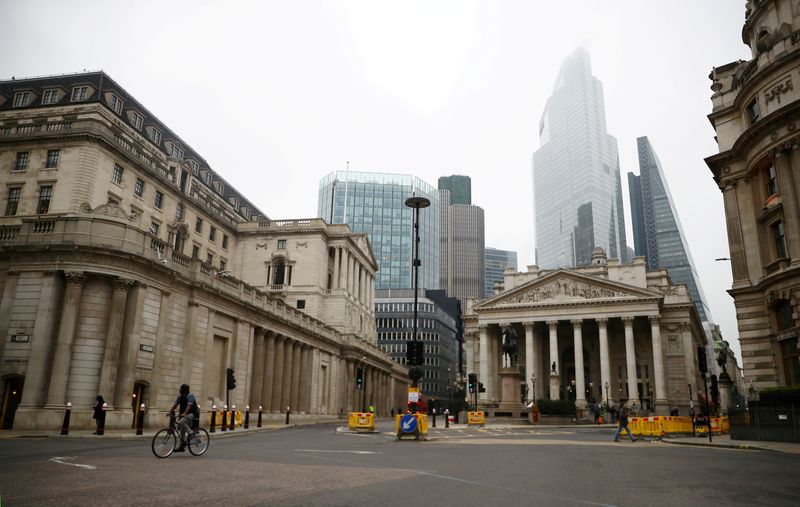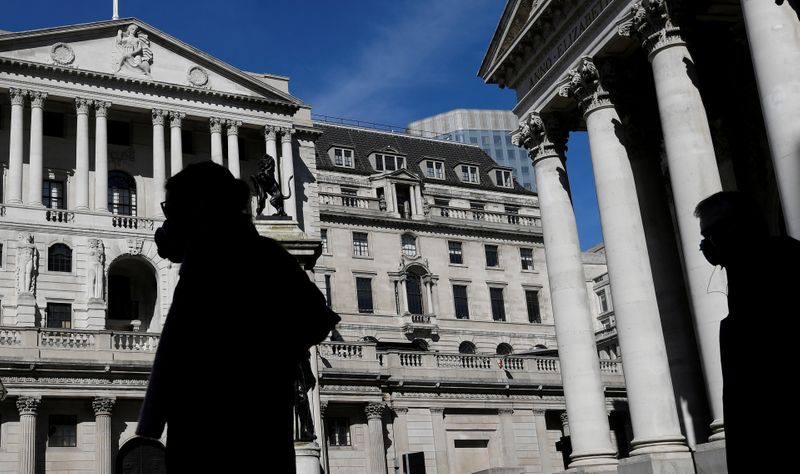By William Schomberg, David Milliken and Andy Bruce
LONDON (Reuters) - The Bank of England increased its bond-buying programme by a further 100 billion pounds ($125 billion) on Thursday to help steer the economy away from its record coronavirus slump, but sharply slowed the pace of its purchases.
The BoE kept its key interest rate at 0.1% and there was no discussion in the policymakers' minutes of taking it below zero - an option that Governor Andrew Bailey and other officials have said is possible in the future.
Eight members of the nine-strong Monetary Policy Committee voted to increase the bond purchase programme, while BoE Chief Economist Andy Haldane voted against an increase.
All nine members voted to keep Bank Rate unchanged.
The central bank said it would spend all the extra 100 billion on government bonds but would slow the pace of its purchases, saying it expected the new total 745 billion-pound target would be hit around the turn of the year.
That represented a much slower pace than its rush to buy gilts since the coronavirus pandemic escalated in March.
The BoE said recent payment data and other up-to-date signals from the economy suggested consumer spending could already have reached a level that it previously expected would only be reached by the third quarter.
But there were risks that a rise in unemployment could be worse than it had thought.
Sterling rose and British government bond yields touched their highest since June 10 after the decision, before easing back a little. The 2-year gilt yield briefly turned positive for the first time in more than a week.
A Reuters poll of economists had pointed to a 100 billion-pound increase in the asset purchase programme and Bank Rate remaining at 0.1%.
But some economists had predicted a bigger increase to the asset purchase programme and possibly a clearer signal that negative rates were under consideration.
"Despite its recent flirting with negative policy rates, we think it is quite unlikely the Bank will go down this path," Luke Bartholomew, an investment strategist at Aberdeen Standard Investments, said.
The BoE is using its bond-buying programme as its main policy tool as it tries to help steer Britain's economy away from a record 25% slump in March and April.
By soaking up much of the surge in borrowing by the government - which has ramped up spending to tackle the COVID-19 hit to the economy - the BoE is keeping a lid on borrowing costs paid by businesses and consumers as well as the state.
The BoE also says that pumping more stimulus into the economy will help it meet its 2% inflation target. Data on Wednesday showed annual inflation of just 0.5% in May.

($1 = 0.7981 pounds)
